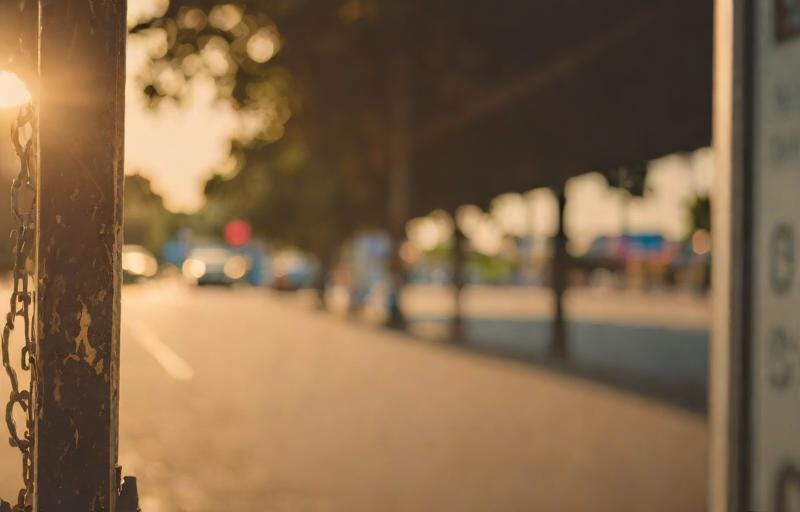Mr. Nostrum had convinced Charles on the values of riding the bus during Charles’ senior year in high school. Apparently Mr. Nostrum and his wife, also an English teacher, chose to ride the city busses from their home to the school at least once a week. Burlton was a “commuter city,” and the bus was commonly considered an option only for the desperate: welfare bums, gangsters, undocumented immigrants afraid of being pulled over without a license. “But the service won’t continue unless people use it,” said Mr. Nostrum, and somehow that personal manner in which Mr. Nostrum described it made the occasional bus ride Charles’ civic duty.
Now, there was a route that conveniently stretched along Melrose Ave from the University to one of the smaller library branches, near the foothills and the stadium that lead to Charles’ first college apartment. However, the bus service was always erratic and Charles had a car, and anyway he usually needed to go to work after classes. On days he didn’t have work he had classes too early or too late for busses to be running, and on days he had fewer classes at more regular times he usually had work.
Today, however, the schedule aligned and he had taken the city bus to school. He had no shift but he had a lot of homework, so he hoped to stop by the library on the way home.
The bus home did not arrive for some time. Charles was even less familiar with taxis than he was with the bus system and he was afraid or embarrassed to call his friends. His friend Matt called him all the time for rides, but Charles resented giving Matt the favor and did not want to ask for it returned or ask it of others.
So he waited in the late afternoon sunlight. It was at that violent angle that allows no shade and blinds you if you look at anything but your own shadow. He had no water, and the sun gave him a headache. Several times he considered crossing the two blocks to the CVS, but though he did not consider himself a superstitious person, it struck him that the only way to guarantee the bus’s arrival would be if he left the stop to miss it.
An old woman in a ratty blanket worn like a shawl arrived at the bus stop and sat in its glass housing. She rocked and moaned and when Charles glanced over, she was licking snot off the palms of her hands, dribbling it out, and then licking it up again.
Finally the bus reeled in and Charles reeled on.
The chug of the brakes and sigh of the hydraulics and industrial cacophony of the engine crinkled the burnished late summer air. Most of the seats were full of huddled shapes Charles couldn’t make out because of the sudden plunge out of sunlight. The air conditioning did not work so the windows were rolled down as the only method of cooling.
He slumped down onto the only seat that had its adjacent twin empty. The two were mounted on a bar nailed to the wall and the wall had a crack, so his seat hinged down when he sat on it, and in fact bounced like a spring when the bus hooted to life and lurched forward in that manner that feels like accelerating and feels like stopping at the same time. They were stuck in a traffic jam though Charles had seen nary a car on Melrose Ave during the wait seconds before.
Charles didn’t know where to look but he couldn’t stand the sunlight flaring through the open window. Covering his eyes with his hands didn’t help because the sunlight glared up the dust on the bottom glass, a full panel of crystalized fire. He turned to the sharp darkness of the interior and the first detail that resolved through the sunspotted pain in his head was eye-contact with one of the miserable shapes that sat one corner up from Charles’ seat.
Through cracked lips the shape smiled something painful hidden behind lip and wild eyes, and he got up and sat down right next to Charles, sinking the loose bar with an alarming squeak.
“Let me show you something,” the shape said. It was a man. Of course it was a man. Charles didn’t want to be uncomfortable or alert the man to his discomfort. He wished he wasn’t in the inner seat.
Keep reading with a 7-day free trial
Subscribe to Indulging a Second Look to keep reading this post and get 7 days of free access to the full post archives.





